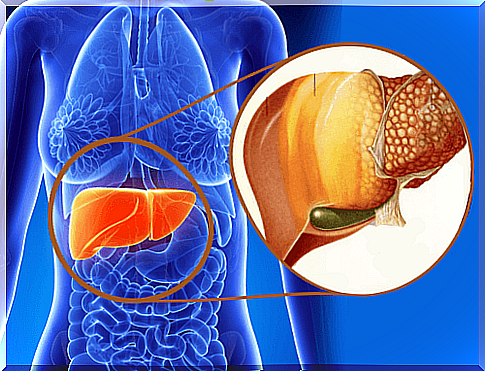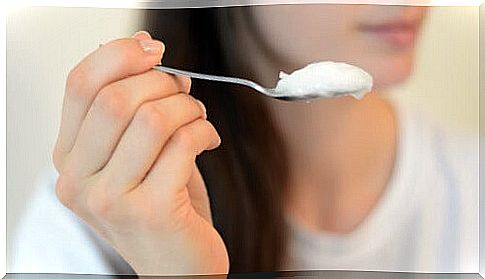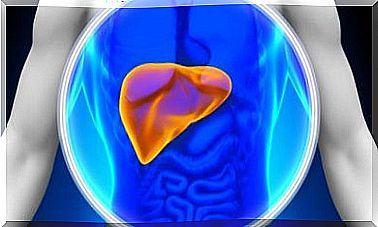Coconut Oil For Fatty Liver

Coconut oil is used both as a food and as a cosmetic. Furthermore, it is a very healthy natural ingredient that allows you to take care of health and beauty; thanks to its essential fatty acids.
Today, we’ll talk about how coconut oil can help you fight a variety of liver-related problems, especially fatty liver.
Coconut Oil and Liver Health
First, it is critical to buy it from a reliable health food and product supplier; that can guarantee that the product is organic, cold pressed, free of chemical substances and fragrance free.
Coconut oil has been used since ancient times in both Asia and the Pacific regions to treat various ailments; as well as for skin and hair care.
Nowadays, the product is being used in all countries, after a period of skepticism, when it was thought that it could be dangerous for the heart. ,
The doubts are the past and it is possible to use coconut oil always, as long as it is in a balanced way.
Benefits of Cold Pressed Coconut Oil

Coconut oil is a type of healthy fat capable of participating in the composition of cells and tissues, as well as helping in various metabolic processes. It is not because it is “fat” that it will harm us ; since the body needs these fatty acids to function well.
This oil is made up of medium chain fatty acids. Most fats are long chain and have a negative effect on cholesterol. The case of coconut is not like that; for it benefits our liver and heart.
— Contains lauric acid, a substance that fights “bad” cholesterol and regulates blood pressure.
— Coconut oil has a much higher level of antioxidants, which protect our liver from free radical attack; since it favors the correct elimination of toxins.
Coconut oil to treat fatty liver
Thanks to coconut oil, it is possible to reduce the inflammation of the liver, as well as the increase in size, one of the symptoms of fatty liver. By decreasing the accumulation of fat in the liver, its workload is also reduced.
Furthermore, it is effective to fight viruses, bacteria, fungi and other pathogenic micro-organisms. Thus, it helps the liver to defend itself from invasions by harmful agents.
Other studies indicate that regular consumption of coconut oil (one tablespoon a day) helps prevent liver damage caused by alcohol.
Coconut oil gives us energy
Coconut oil is also capable of providing the body with a significant amount of energy. One of the symptoms of liver problems is the feeling of daily tiredness and apathy.
As it is energetic, it is common for athletes to include the oil in their diet, mixing it with vitamins and juices. The more energy we have, the faster our metabolism will work and the more energy we will have for everyday life.
You’ll also be pleased to know that, along with a balanced diet and exercise, coconut oil also helps us lose weight in a healthy way.
Coconut oil improves digestion

Coconut oil can help us improve the functioning of the digestive system and contribute to the correct absorption of nutrients.
Furthermore, the minerals and amino acids present in this natural compound help to combat many digestive problems; like ulcers or irritable bowel syndrome.
Another interesting fact is that the fats present in the oil have antimicrobial properties, which help the body to eliminate bacteria, fungi and parasites that cause indigestion and other digestive problems.
Daily dose and possible side effects
The recommended dose is one tablespoon daily on an empty stomach. You can mix it with juices and smoothies.
When consuming it, the main adverse effects that may appear are possible nausea and stomach upset. As each body is unique, we need to be aware of the effects of any change in the body.
If you prefer, you can consume three teaspoons a day, morning, noon and night; rather than a single tablespoon. But don’t exceed that dose.









